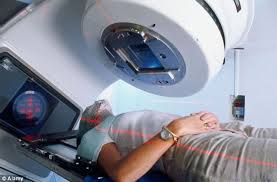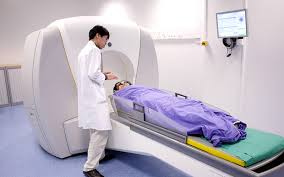The battles of Heroin Addiction in Families
The battles of Heroin Addiction in Families: The wrong choices we often make

The battles of Heroin Addiction in Families must all be inclusive. Heroin addiction is a great to every family
There are certain things that we do not because we want to but because we see our friends and relatives do. The motivation is to have the feelings they have upon using the things they use or doing what they do. In other words the sense of belonging is the reason why all these are happening. Take for instance in the world of drug addiction you will be amazed at what people do just not to be left out and in the process they find themselves into real problems not just in their health and peace of mind but also with the law enforcement agencies. Even though addiction cuts across and everyone is vulnerable, it hit the hardest at the family unit. We spoke to doctor Dalal Akoury the MD and founder of AWAREmed Health and Wellness Resource Center about the battle of heroin addiction in families and it is amazing seeing how simple desires can land us into real threats of addiction.
As a professional in this discipline doctor Akoury is going to shed some light on how influential heroin can be in your life no matter how you got introduced to it. She says that one morning while in her office a lady walked in and was very depressed. When she gave her time to share her problem she open up and poured out her heart on the battles she has with heroin addiction. For confidentiality we will call her Jimssy not her real name. Jimssy is a full-time housewife and mother and hardly fits the stereotypical picture of a heroin addict. However for the past two of her adult life, she was obsessed with getting high on heroin a passion she shared with her husband, Jim not his real name who has been battled his own addiction for over two decades now.
Jim had been struggling with heroin addiction for years when his wife joined the league of shooting up heroin. Even though Jimssy was not ignorant of the effects of heroin on her husband, she voluntarily decided to test the water one day following an advice from her friend who informed her that using heroin would significantly relieve the pain of headache and muscular pains she had suffered from epileptic seizures she has been struggling with for more than 15 years now. It is amazing how friends can be very destructive to our well-being. This friend without any consideration of the know consequences, approached her friend with the news she knew Jimssy would be interested in, that is the solution to her struggle with pain. Jimssy acknowledges that, that was her first time and regret having such a friend in her life. She goes ahead to explain that her main reason for testing the waters even though she knew the struggles her husband, was to get better, the pain was becoming unbearable. What do you think about her decision? You may suggest that under the circumstances she was justified because she was looking for solutions about her pain. Nonetheless it is still not right, every advice you get from a friend must be confirmed by a medical doctor and that is why doctor Akoury founded this facility where you can get all the professional assistance concerning your health and addiction at any time of the day.
The battles of Heroin Addiction in Families: Breaking the Boredom
Another point doctor Akoury observed from the patient is the mind set of many people about things and situations around them. Like for instance Jimssy says that besides the advice from the wrong friend, she was curious, she wanted to understand the feelings of this drug heroin, and she confesses that “I wanted to know what this was that [Jim] was doing. Why it was so attractive. And she sought the silence that if she was to try it just briefly for a few times, it won’t do her any harm and that it wouldn’t result into addiction since it is only for a few times.” That is what she thought and besides she had also heard that heroin improved sexual performance. (The seizure medications she had taken for her epilepsy had dampened her libido.) Heroin, she says, helped her feel more sexual, and that was a big attraction.
Doctor Akoury says that she had it all well planned. And in her own wisdom, to avoid getting hooked, she refrained from doing the drug for four days between uses. Then, she started doing it on the weekends “to break the boredom.” This plan may have looked brilliant, but remember that heroin is such an addictive drug and so despite her plans and to her great denial she quickly became addicted. She adds that “I saw what it had done to my husband. But I had no idea at all of the pull it had on users.” If you are listing keenly to Jimssy and you or anyone you know is struggling with any form of addiction, you can be of help first to yourself and then to the others by scheduling for an appointment with doctor Akoury today.
In the meantime Jimssy tells us that as at that time she was being introduced into drugs, she was working and earning her money from her job which was well enough to finance this new expenditure. The income helped her feed their habits and every day was such a good day because they could afford for more drugs. But it also caused strife in their relationship. They would share their drugs, and Jimssy says, the pull of addiction quickly introduced an enemy in their relationship, the enemy known as mistrust. They longer had trust for each other. She feared sending him alone to buy drugs with her money because he would take more than his share on the way home. He felt the same way about her. “It just starts eating away at your love, your partnership, the whole marriage,” she admits. Doctor Akoury reacts to this professionally and informs Jimssy that drugs will remain bad irrespective of the influence you may get from any of your friends. We will continue listening to Jimssy in our next article but for now, we must choose and choose wisely. This life we have, we can only live it once and when we still have that opportunity, then we must consult with the medical experts from time to time to have things done the right way. Talk to us today at AWAREmed Health and Wellness Resource Center and we will offer you real time solutions to all your addiction problems.
The battles of Heroin Addiction in Families: The wrong choices we often make




